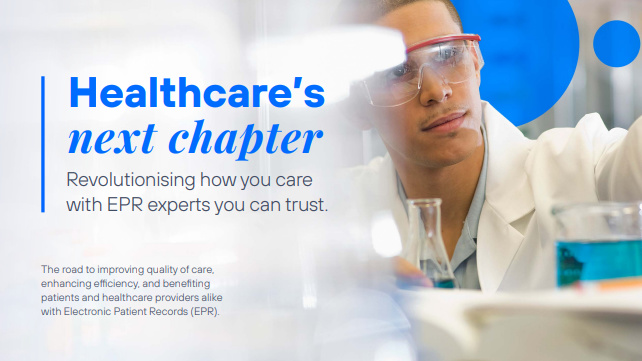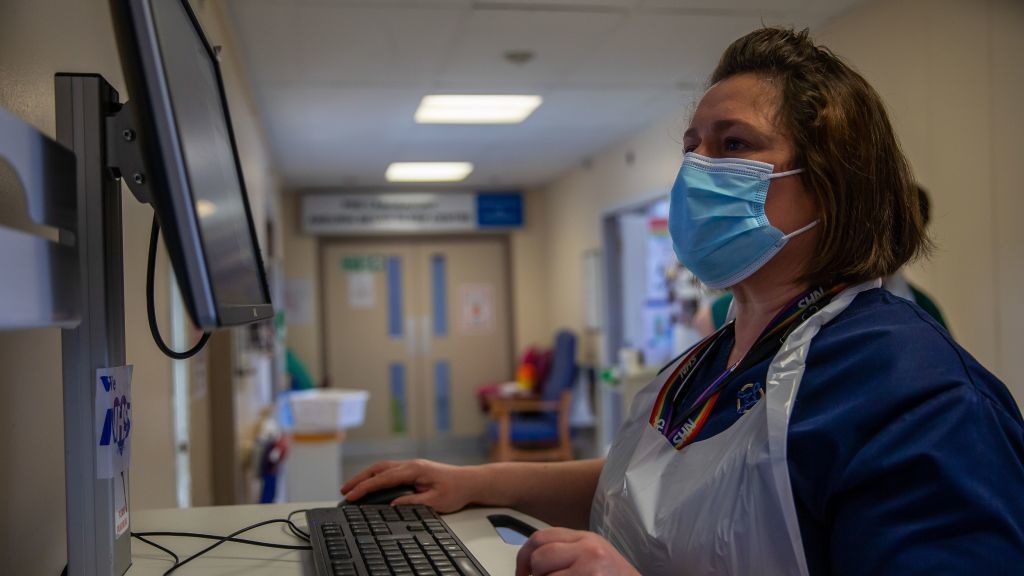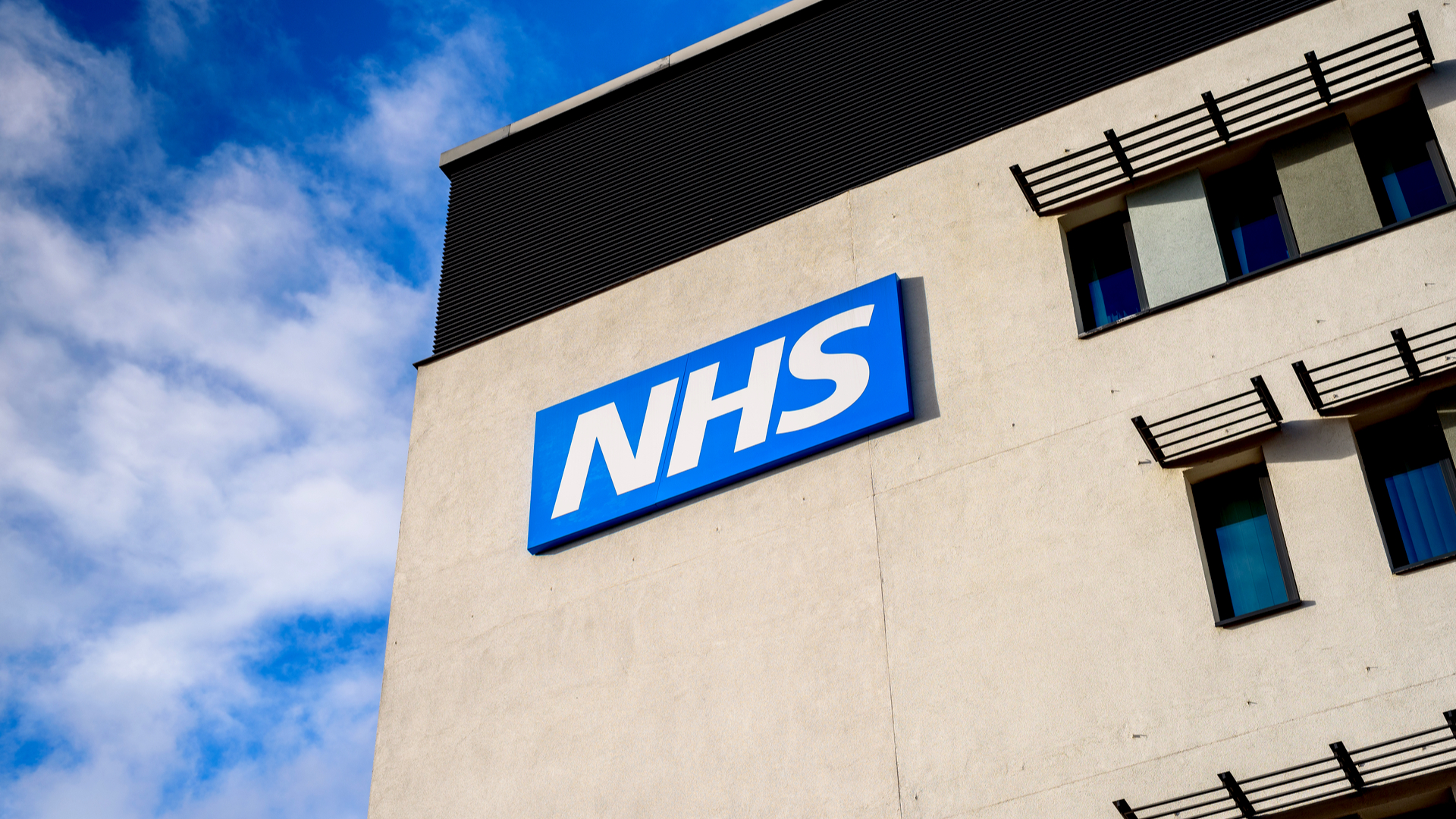Westminster & Chelsea Hospital pioneers cloud initiative
A cloud-based project could help the NHS overcome patient record problems.


Cloud computing could be the way to solve the problem of patient records within the NHS.
A pioneering new scheme has been developed by Edinburgh's Napier University and cloud company Flexiant. They are working with Westminster and Chelsea Hospital to deliver the service.
The new system took 18 months to develop and has been designed to improve communication between patients, hospital consultants and GPs.
The NHS has a long-standing problem with patient records. Historically, there has been no common standard method for entering and accessing records. The technology being pioneered at Westminster and Chelsea hospital looks to solve many of the issues faced by health professionals.
Professor Bill Buchanan of Edinburgh Napier University will be explaining some of thinking behind the E-Health cloud platform at the Innovation with Healthcare conference to be held later this month.
"The current infrastructure in the UK often has a non-integrated approach to patient care, where data is not used effectively between GP, hospital and assisted living," he said. "Our system allows for data to be stored with its context, such as where it was captured, and then used in whatever way is necessary through well-managed clinical services."
One of the key issues with patient records is privacy and Buchanan said that system was pretty rigorous.
Sign up today and you will receive a free copy of our Future Focus 2025 report - the leading guidance on AI, cybersecurity and other IT challenges as per 700+ senior executives
"Security is integrated into every single transaction, and we host it on Flexiant's cloud, to give us a scaleable and robust e-Health infrastructure," he said.
The security structure, which has been designed by Flexiant, will use a multi-factor authentication system that integrates with existing NHS security,
The system goes further than existing patient records, however. It uses a unique patient simulator', which creates patient records with different clinical parameters such as body temperature and blood pressure, to represent different patient illnesses. This is designed to show how the service can be used in clinical diagnostics, with a risk assessment score or early warning score (EWS) to identify problems early.
Crucially, the E-Health platform will enable health professionals to access information from an array of mobile devices. At the same time, patients will have full control over who has access to their data, using a variety of ID methods, including mobile phone checking and trusted identity providers like Facebook or PayPal.
"Our Foundation trust is at the forefront for providing technological innovations in the hospital clinical environment, to improve patient care," a Chelsea and Westminster spokesman said.
"Implementation of the cloud infrastructure at the hospital will be one of many enhancements made to patient care by Professor Derek Bell through his role as the director of NWL CLARHC which has an ethos of closing the second translational gap and bringing research into practice."
Max Cooter is a freelance journalist who has been writing about the tech sector for almost forty years.
At ITPro, Max’s work has primarily focused on cloud computing, storage, and migration. He has also contributed software reviews and interviews with CIOs from a range of companies.
He edited IDG’s Techworld for several years and was the founder-editor of CloudPro, which launched in 2011 to become the UK’s leading publication focused entirely on cloud computing news.
Max attained a BA in philosophy and mathematics at the University of Bradford, combining humanities with a firm understanding of the STEM world in a manner that has served him well throughout his career.
-
 The race is on for Higher Ed to adapt: Equity in hyflex learning
The race is on for Higher Ed to adapt: Equity in hyflex learningHyflex courses can improve student wellbeing and engagement, but only with meeting technology that leaves no one behind
-
 Gen Z workers are keen on AI in the workplace – but they’re still skeptical about the hype
Gen Z workers are keen on AI in the workplace – but they’re still skeptical about the hypeNews Younger workers could lead the shift to AI, but only think it can can manage some tasks
-
 NHS leaders are keen to adopt new digital tools, but IT can't solve problems on its own
NHS leaders are keen to adopt new digital tools, but IT can't solve problems on its ownA survey of healthcare decision-makers finds they believe IoT devices and electronic health recording could help them reach more patients quicker
-
 How a paperless approach cut wasted staff hours at Bradford Teaching Hospitals Trust
How a paperless approach cut wasted staff hours at Bradford Teaching Hospitals TrustCase study Through DrDoctor’s digital portal for patient appointments and advice, the Rheumatology team at Bradford Teaching Hospitals NHS Foundation Trust has dramatically cut
-
 Healthcare’s next chapter
Healthcare’s next chapterwhitepaper Revolutionizing how you care with EPR experts you can trust
-
 How digital experience management helped an NHS trust improve productivity
How digital experience management helped an NHS trust improve productivityCase study Princess Alexandra Hospital NHS Trust used digital experience management to cut device failure and restore time to clinicians
-
 Will the NHS Federated Data Platform transform UK healthcare?
Will the NHS Federated Data Platform transform UK healthcare?In-depth Plans to create a data platform in partnership with the private sector could revolutionize NHS treatment, but concerns over data privacy and security are festering
-
 NHS IT issues costing doctors more than 13 million hours annually
NHS IT issues costing doctors more than 13 million hours annuallyNews Doctors warn that ageing IT infrastructure is impacting patient care and clinical outcomes
-
 Automation is helping the NHS clear its patient backlog, but not as quickly as expected
Automation is helping the NHS clear its patient backlog, but not as quickly as expectedAnalysis The healthcare service's big bet on robotic process automation is making 'impactful' but slow progress
-
 DHSC sets out ambitious targets for NHS App by 2023, beyond
DHSC sets out ambitious targets for NHS App by 2023, beyondNews Ongoing NHS digitisation efforts will form backbone of the new system
